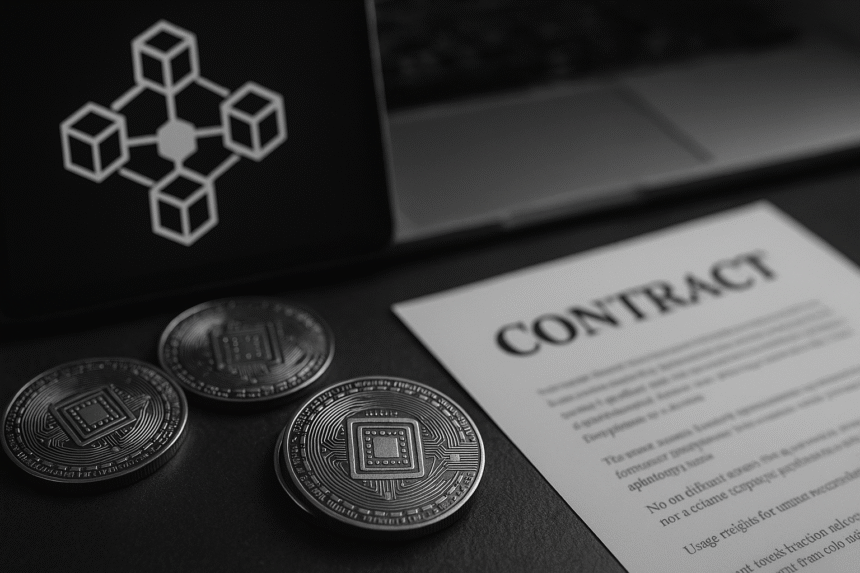A utility token is a type of cryptocurrency that gives holders access to a specific product or service within a blockchain-based platform. Unlike security tokens, utility tokens are not designed for investment purposes but instead enable participation, rewards, or features in a decentralized application or network.
Breaking Down the Definition
A utility token is a digital token issued on a blockchain that grants access to a platform’s functions, services, or perks. It’s called a “utility” token because its primary purpose is to be useful within a specific ecosystem.
Key features of this token:
- Access: Grants users access to certain features, such as storage, bandwidth, or premium content.
- Payment: Used as a medium of exchange within the platform.
- Incentive: Rewards users for contributions or participation (e.g., providing liquidity, staking, or engagement).
What a utility token is NOT:
- It is not the same as a security token, which represents ownership, dividends, or profit-sharing.
- It is not legal tender outside its ecosystem.
Why Utility Tokens Matter
These tokens are vital for the growth and operation of decentralized applications (dApps), especially in industries like fintech, online gaming, digital identity, and decentralized finance (DeFi).
In startup and tech contexts, these tokens are often used to:
- Fundraise via token sales (ICOs) without selling equity.
- Build user networks by incentivizing early adopters.
- Reduce friction in platform transactions by using a native currency.
- Unlock premium services within apps like storage, messaging, or gaming tools.
Example industries using utility tokens:
- SaaS platforms reward users for referrals using tokens.
- EV charging platforms use utility tokens to track and pay for energy usage.
- Online education platforms may tokenize access to specialized content.
Utility tokens are especially popular among startups that want to launch quickly, reward contributors, or create circular economies within their platforms.
Legal or Practical Implications
While utility tokens aren’t securities, regulators around the world often scrutinize them to ensure they aren’t misused to bypass investor protections. Mislabeling a utility token could lead to legal trouble.
Legal considerations include:
1. Token Classification and Compliance
- In the U.S., if a token has characteristics of an investment contract (as per the SEC’s Howey Test), it may be treated as a security—even if labeled a “utility” token.
- In the EU, MiCA (Markets in Crypto-Assets Regulation) distinguishes between utility tokens, asset-referenced tokens, and e-money tokens—each with different rules.
- In the UAE and Singapore, utility tokens are generally permitted but must be registered if they have elements of capital raising.
2. Contract Drafting & Token Use
- Legal agreements (e.g., token purchase agreements or whitepapers) must clarify:
- The non-investment nature of the token.
- Usage rights (what the holder can access).
- Limitations (not a claim on profits, ownership, or assets).
3. Risk Allocation
- Poorly defined token utility can lead to disputes over value, access, or refunds.
- Smart contracts governing token use must be transparent and immutable—or upgradable with caution.
Example Clause or Use Case
Real-World Scenario:
A blockchain-based freelance platform issues its own utility token, called “SkillCoin.” Users buy SkillCoin to access premium job postings, boost their profile visibility, or get paid by clients.
Here’s what the Terms of Use might include:
“SkillCoin is a digital utility token used solely within the SkillX platform. It does not confer any ownership, voting rights, or profit participation. Holders may redeem SkillCoin for platform services such as premium listings, featured placement, or subscription access.”
In this case:
- The token facilitates access and interaction within the platform.
- No financial returns are promised.
- The legal document clearly separates the token from any claim of equity or security.
Call-to-Action
Navigating token use in your business?
Don’t risk compliance missteps or user confusion. Whether you’re building a tokenized platform or drafting crypto-related contracts, understanding how utility tokens work is critical.
👉 Download our Token Classification Checklist or book a consultation to structure your token offering properly.



Leave a Reply